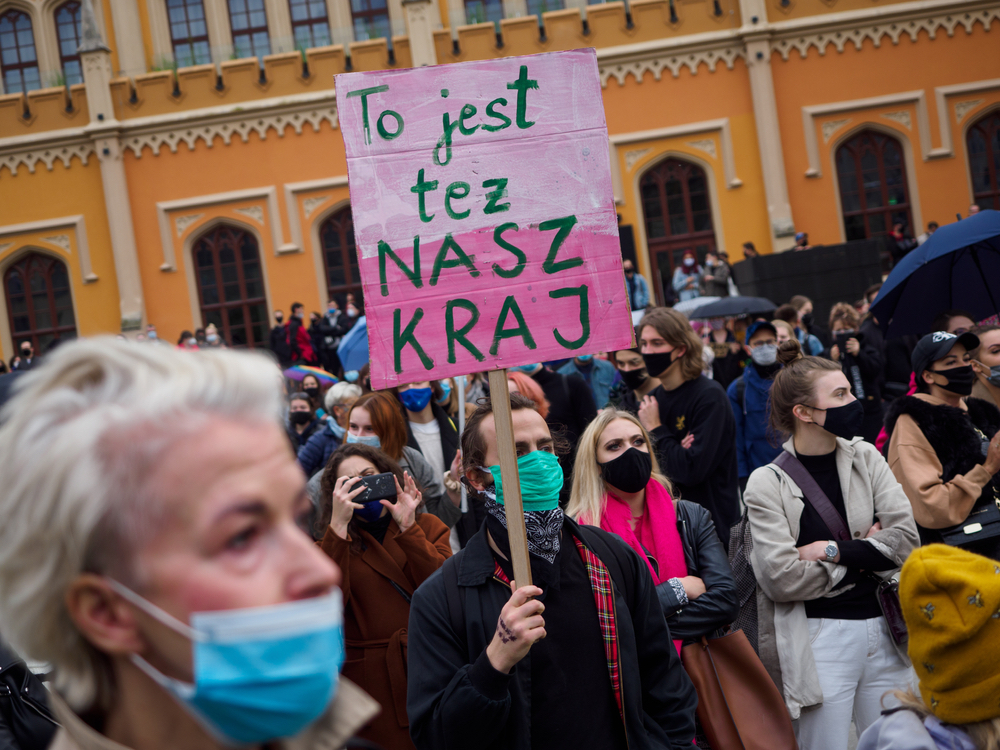Poland Holds off on Abortion Ban as Protests Continue Nationwide

Poland’s controversial abortion ban has been delayed after thousands gathered to protest a court ruling that could make abortions almost entirely illegal.
The world has been watching Poland for the past few weeks as news coverage amplified its widespread protests. The protests came after Poland’s constitutional tribunal ruled that nearly all abortions would be banned in the country, even those due to fetal defects.
well done Poland, quite a protest https://t.co/3h8YVC8x1L
— Alison Gray (@alisonlouisegra) November 3, 2020
Many grew angry once news of the ban let out, and thousands took to the streets of Poland to protest. It is estimated that over 100,000 people participated despite current COVID-19 restrictions.
also ive been watching the protests happening in poland and lemme tell u i am PROUD of all the women who are fighting!!!!! although this shouldnt even be happening in the first place
— reporting live from wonho’s slippers (@IW0NH0YOU) November 3, 2020
Protesters gathered outside the home of Jarosław Kaczyński, leader of Poland’s ruling party, where they clashed with police. Protestors were pepper-sprayed and 15 were arrested.
The protests have been peaceful for the most part, except for a few hecklers, and protests this large have not been seen in Poland since the ’80s. Many around the world have expressed their support and solidarity with Poland on social media as they also advocate for women’s reproductive rights.
Heres some great news: the complete abortion ban that was going to be instituted in Poland has been delayed thanks to the protests.
— Steph McFlurry ♊️🎆 (@slagsloth1) November 3, 2020
The nonstop protesting and marching seems to be working as Poland just announced that they will delay the ban for now. The ban would be one of Europe’s strictest and would make abortion practically illegal, since most abortions in Poland are due to fetal defects.
Who said protests don’t work? Fantastic work by the women of #Poland https://t.co/bNSvRipvm9
— MagsSheehan (@angryinmayo) November 4, 2020
Many are hoping the delay is a good sign, but they’re urging those in Poland, especially women, to continue fighting for their reproductive rights. Similar talks have occurred across the US in recent weeks after the death of Supreme Court Justice Ruth Bader Ginsburg and the appointment of conservative Amy Coney Barrett, who is known to have anti-abortion views.
An abortion in my early 20’s kept me from being tied to my violent abuser for the rest of my life. I was able to leave a few years after it. My heart breaks for Poland right now & the thought that we could be next in the US is terrifying. 💕 https://t.co/yksK90Phu4
— Former Sex Worker; Current Soap Maker & Donator! (@honey_goat) November 4, 2020
All eyes are now on Poland as we wait to hear the final decision on the abortion ruling. Whether you’re located in Poland, the US or another part of the world, it is important to stand up and speak out against extreme abortion restrictions and other laws and policies stripping women of their reproductive freedoms.

Writer | Tweet me @itsjadak




